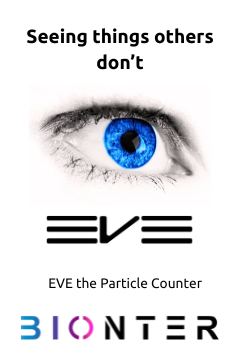Advertisement

Document › Details
Humabs BioMed S.A.. (7/18/17). "Press Release: Humabs BioMed and University of California, Berkeley Announce Publication of Data for Novel Antibody-based Assay to Detect Zika Virus Infection". Bellinzona & Berkeley, CA.
 |
Organisation | Humabs BioMed S.A. |
| Group | Vir Biotechnology (Group) | |
| Organisation 2 | University of California, Berkeley | |
| Group | University of California (System) | |
 |
Person | Hennecke, Anne (MC Services 201211 Managing Partner before Evotec + Schwarz Pharma) |
| Person 2 | Doyle, Laurie (MC Services 201707 US) | |
> Published in peer-reviewed journal, Proceedings of the National Academy of Sciences
> Assay able to discriminate between Zika and other flaviviruses, including dengue
Humabs BioMed SA, a leading Swiss antibody therapeutics company, and the University of California, Berkeley today announced the publication of data with an antibody-based assay, developed by Humabs, to detect and differentiate Zika virus infections from other flaviviruses such as dengue in the leading peer-reviewed journal, Proceedings of the National Academy of Sciences (PNAS). The article is titled, "Antibody-based assay discriminates Zika virus infection from other flaviviruses." The study's co-senior authors were Eva Harris, PhD, Professor, Division of Infectious Diseases and Vaccinology, School of Public Health, University of California, Berkeley and Davide Corti, PhD, Chief Scientific Officer of Humabs BioMed.
The work to determine the sensitivity and specificity of the assay was a collaborative effort involving laboratories in five countries - Nicaragua, Brazil, Italy, the United Kingdom and Switzerland. Dr. Harris coordinated with her collaborators in Nicaragua to provide very well-characterized samples from the unique long-term studies they conduct jointly, which enabled critical evaluation of the assay using multiple time-matched samples from Zika patients with or without prior exposure to dengue virus alongside samples from dengue patients infected once or more than once with different dengue virus serotypes. The results indicated that this novel test, derived from Humabs' CellClone technology, was highly sensitive, specific and robust.
Davide Corti, PhD, Chief Scientific Officer of Humabs BioMed, said: "These results support that the antibody-based assay that we have developed is highly effective in detecting both recent and past Zika virus infections and in discriminating Zika from other flavivirus infections. This novel assay has the potential to become an effective, simple and low-cost solution for Zika surveillance programs, prevalence studies and clinical intervention trials in flavivirus-endemic areas."
Eva Harris, PhD, Professor, Division of Infectious Diseases and Vaccinology, School of Public Health, University of California, Berkeley, said: "It is very exciting to finally have a robust, high-throughput assay with such high sensitivity and specificity to distinguish Zika virus infections in dengue-endemic countries; we have already applied it to large age-stratified serosurveys and spatial analysis of Zika virus infection in Nicaragua, advancing scientific research while providing critical data to public health authorities in real time."
Zika virus has turned into a public health threat, particularly due to its association with severe congenital birth defects. The high level of cross reactivity among flaviviruses and their co-circulation has made the use of serological assays to detect infection challenging. While today a number of assays do exist, their ability to detect Zika except in a very small window of time and to differentiate it from other flaviviruses is limited. This has made it very difficult to accurately determine the prevalence of Zika infections, the incidence of congenital Zika syndrome in babies born to infected women, as well as to identify neurological complications associated with Zika virus infections.
Utilizing its proprietary CellClone discovery technology, Humabs generated a ZIKV nonstructural protein 1(NS1)-specific human monoclonal antibody, which the company then used to develop the assay. The assay is a competitive ELISA format and is based on measuring the presence of plasma or serum antibodies in immune individuals that are able to block the binding of a labelled monoclonal antibody to coated Zika virus NS1. The assay is named NS1 blockade-of-binding (BOB) ELISA and was tested using a large panel of well-characterized clinical samples from travelers and patients living in areas with a high level of exposure to Zika virus and endemic for other flaviviruses. Testing was conducted in several laboratories in both Latin America and Europe. The results indicated that the test was highly sensitive, specific and robust. The assay is also cost effective and easy to use, designed to make it available in those areas of the world where it is urgently needed.
About Zika virus
Zika virus belongs to the class of viruses called flaviviruses, which also includes the dengue and West Nile viruses. Zika virus is spread by mosquitoes and has reached large parts of the tropical and subtropical regions of the world, including parts of the United States. The World Health Organization (WHO) declared in early 2016 a state of Public Health Emergency of International Concern (PHEIC) and predicted that 3-4 million people would become infected annually, 1.5 million of these in Brazil alone. While the symptoms of Zika virus infection can be absent or generally mild, the virus appears to invade the neural tissue of the fetus, leading to microcephaly and other neural defects in offspring in up to 13% of cases. The virus can also be spread by bodily fluids, including semen, and so can also be sexually transmitted. While attempts have been made to reduce the spread of the virus by spraying with insecticides, there are currently no vaccines or treatments against Zika, and WHO has declared a need for a long-term approach to combatting this infection. Thus, there is an urgent need to develop assays to detect Zika virus infection and therapies to treat this rapidly spreading disease.
About Humabs BioMed SA
Humabs BioMed, a private biotechnology company based in Switzerland, is focused on discovering and developing fully human monoclonal antibodies to treat serious infections. Humabs BioMed is a spin-off of the Institute for Research in Biomedicine (IRB), which is affiliated with the Universita` della Svizzera Italiana (USI). Humabs' proprietary discovery technology - CellClone - platforms enable the isolation of antibodies that have passed natural selection by the human immune system in response to disease and can generally be developed rapidly without extensive lead optimization. Humabs has a portfolio of more than a dozen immunotherapy product candidates. The Company has partnered several of its programs with MedImmune and Novartis, and two of these programs are now in clinical development by these partners. Humabs is internally developing antibodies directed against hepatitis B virus and respiratory syncytial virus and metapneumovirus (RSV/MPV). These programs are currently in preclinical development. In collaboration with various public health agencies, Humabs is also developing a portfolio of immunotherapies against major public health threats, including MERS-CoV, dengue, Ebola, Rabies and Zika viruses.
Humabs Biomed
Company Inquiries
Humabs BioMed SA
Dr. Davide Corti, CSO
Tel. +41-91-825-63-80
info@humabs.com
Media Inquiries
MC Services AG
Anne Hennecke
Tel. +49-211-529252-22
anne.hennecke@mc-services.eu
Laurie Doyle
Tel. +1-339-832-0752
laurie.doyle@mc-services.eu
University of California, Berkeley
Brett Israel
Manager of Science Communications
Tel. +1-510-643-7741
brett.israel@berkeley.edu
Record changed: 2023-06-05 |
Advertisement

More documents for Vir Biotechnology (Group)
- [1] GlaxoSmithKline plc. (4/6/20). "Press Release: GSK and Vir Biotechnology Enter Collaboration to Find Coronavirus Solutions". London & San Francisco, CA....
- [2] Vir Biotechnology, Inc.. (10/18/17). "Press Release: Vir Biotechnology Builds Pipeline, Capabilities, and Lays Out Strategy to Address Serious Infectious Diseases". San Francisco, CA....
- [3] Humabs BioMed S.A.. (9/21/17). "Press Release: Data on Novel Bi-specific Antibody to Treat Zika Virus Infection Published in »Cell«"....
To subscribe to our free, monthly newsletter for the European life sciences, please send an e-mail to info@iito.de and simply fill the subject line with the word »LSE Newsletter«
Find more infos about advertising at [iito] web portals in our media flyer [iito] in a Nutshell [PDF file]
Advertisement

» top
![[LSE] Life-Sciences-Europe.com - The European Life Sciences Web Portal](/images/basics/lse-life-sciences-europe-portal-logo.svg)
![Picture [iito] LSE iitoLifeScience Life Sciences Mass Spec 120x120px](/banner/iito-business-intelligence-20230710-120-120-twitter-iitolifescience-germany-europe-mass-spec.jpg)


![Picture [LSUS] Life-Sciences-USA.com – The Business Web Portal 120x600px](/banner/iito-20181119-120-600-lsus-life-sciences-usa-com.jpg)






